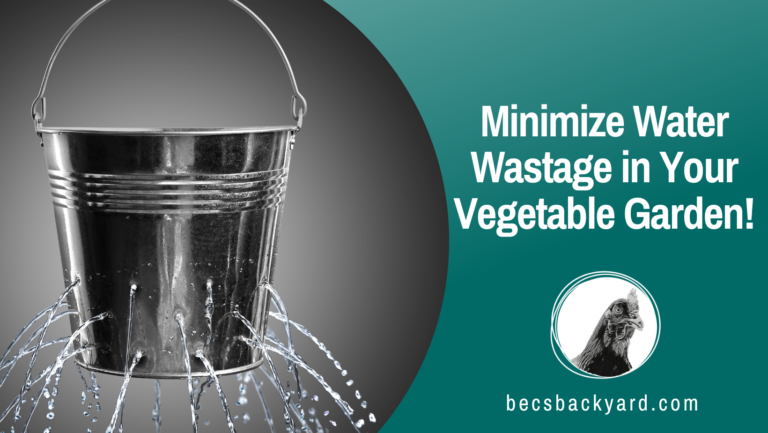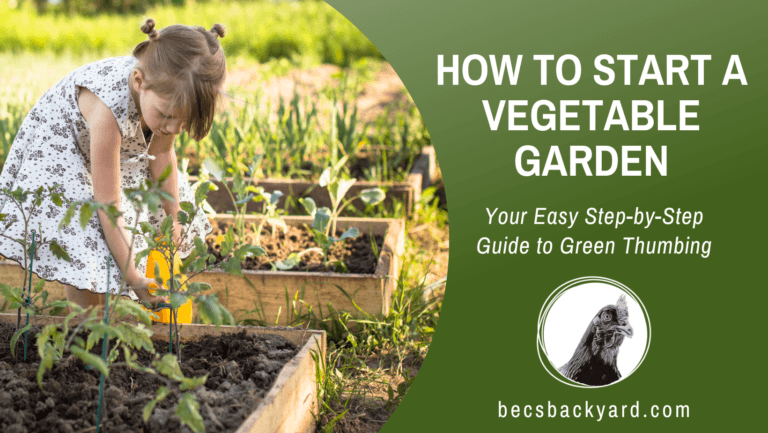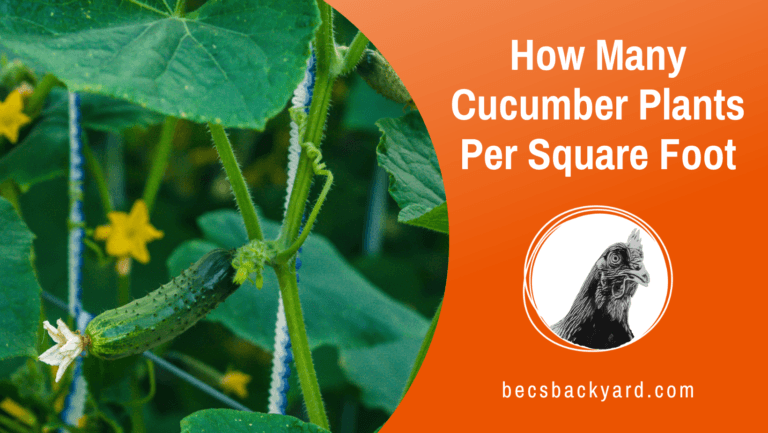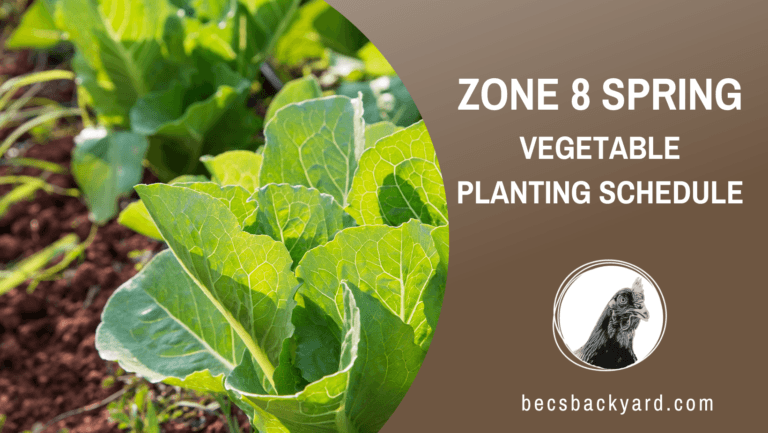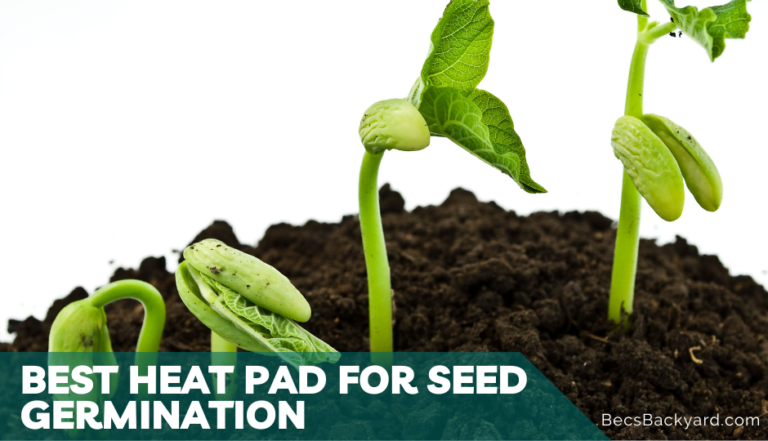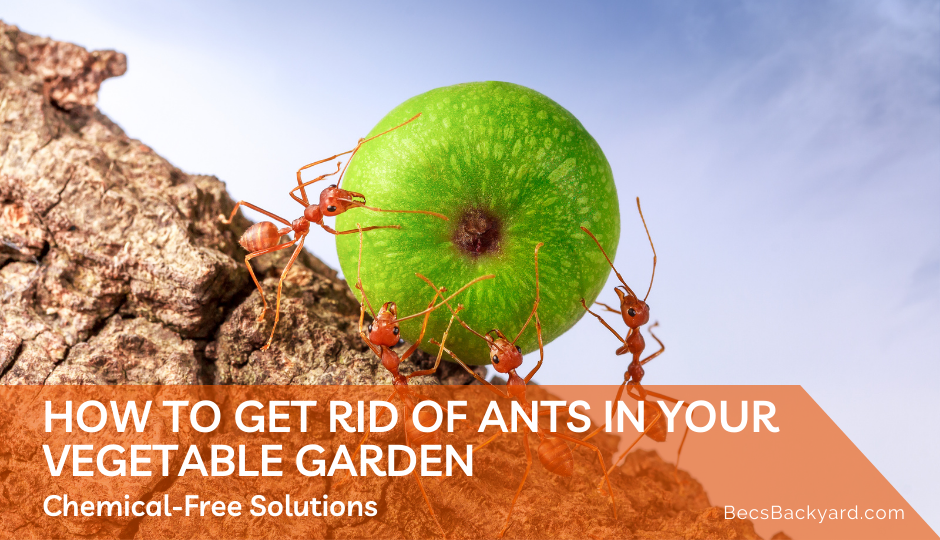Best Companion Flowers for Your Vegetable Garden: Enhance Growth and Deter Pests
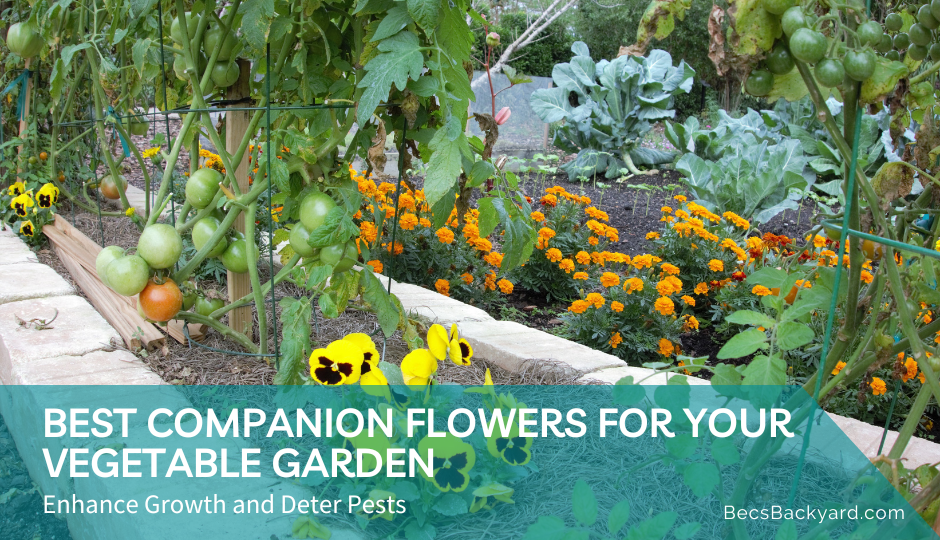
A vegetable garden can be a great addition to any backyard, providing fresh produce for your family. Companion planting is a method of planting different plants together to improve growth and repel pests. One of the best ways to companion plant in a vegetable garden is to include flowers that will attract beneficial insects and repel harmful ones. This post looks at some of the best companion flowers for your vegetable garden.
Choosing the right flowers to companion plant with your vegetables can be a bit overwhelming, but with the right knowledge, it can be a simple and rewarding process. Some of the best companion flowers for a vegetable garden include French marigolds, nasturtiums, and calendula. These flowers are not only beautiful but also attract beneficial insects such as ladybugs and lacewings that will help control pests in your garden. Additionally, they can help improve soil health and add nutrients to the soil.

Companion Flowers for Vegetable Garden
Companion planting is an age-old gardening technique that involves planting different crops together to maximize their growth, health, and yield. Companion flowers can help protect your vegetable garden from pests, attract pollinators, and improve soil fertility. In this section, we will discuss some of the best companion flowers for your vegetable garden.
Marigolds
Marigolds are a popular choice for companion planting in vegetable gardens. They are easy to grow, and their strong scent repels many pests, including aphids, whiteflies, and nematodes. Marigolds also attract beneficial insects, such as ladybugs and hoverflies, which feed on garden pests. They are a great choice to plant around tomatoes, peppers, and eggplants.
Nasturtiums
Nasturtiums are another great companion flower for vegetable gardens. They are edible and add a peppery flavor to salads and other dishes. Nasturtiums attract aphids away from your vegetables and are also a favorite of cabbage butterflies, which lay their eggs on the leaves instead of on your broccoli or cauliflower. They are a great choice to plant around cucumbers, squash, and pumpkins.
Calendula
Calendula, also known as pot marigold, is a beautiful flower that is easy to grow and attracts pollinators to your garden. Calendula has anti-inflammatory and antibacterial properties and is used in many natural remedies. It is also a great companion flower for vegetables, as it repels many pests, including aphids, cabbage worms, and tomato hornworms. Calendula is a great choice to plant around beans, peas, and lettuce.
Companion flowers for your vegetable garden can be a great addition to your vegetable garden. They can help protect your vegetables from pests, attract pollinators, and improve soil fertility. Marigolds, nasturtiums, and calendula are just a few of the best companion flowers for your vegetable garden.
The Benefits of Companion Flowers for your Vegetable Gardens
Companion flowers offer a range of benefits to vegetable gardens, including:
- Attracting pollinators: Many vegetable plants require pollination to produce fruit, and companion flowers can attract bees, butterflies, and other pollinators that help to fertilize the flowers and increase yields.
- Repelling pests: Certain companion flowers release chemicals that repel pests, helping to protect vegetable plants from damage.
- Improving soil health: Some companion flowers have deep roots that help to break up compacted soil, while others add nutrients to the soil through their leaves and flowers.
- Adding beauty: Companion flowers can add color and visual interest to vegetable gardens, making them more attractive and enjoyable to spend time in.
When choosing companion flowers for your vegetable garden, it’s important to consider the needs of your specific plants. Some popular companion flowers for vegetable gardens include:
- Marigolds: These bright, cheerful flowers are known for their ability to repel pests, particularly nematodes, which can damage the roots of vegetable plants.
- Nasturtiums: Nasturtiums are another great option for repelling pests, including aphids and whiteflies. They also add a peppery flavor to salads and other dishes.
- Calendula: Calendula flowers have antifungal properties, making them a good choice for protecting vegetable plants from fungal diseases.
- Borage: Borage is a popular companion flower for tomatoes, as it attracts bees and other pollinators that help to fertilize the flowers and increase yields.
- Sunflowers: Sunflowers have deep roots that help to break up compacted soil, and their large, showy flowers attract bees and other pollinators.
By planting companion flowers for your vegetable garden, you can create a healthier, more productive garden that is also visually appealing. Just be sure to choose flowers that are well-suited to your specific plants and growing conditions, and avoid making exaggerated or false claims about their benefits.
Companion Planting Tips
When it comes to companion planting, there are a few tips to keep in mind to ensure a successful vegetable garden. Here are some things to consider:
Planting Location
When choosing the location for your vegetable garden, it’s important to consider the amount of sunlight and shade each plant needs. Some vegetables, such as tomatoes and peppers, require full sun, while others, like lettuce and spinach, prefer partial shade. Similarly, some flowers thrive in full sun, while others do better in the shade. By planting your flowers and vegetables in the right location, you can ensure that they will grow strong and healthy.
Timing
Timing is also an important factor to consider when companion planting. Some flowers, like marigolds and nasturtiums, can be planted as early as spring, while others, like zinnias and cosmos, should be planted after the last frost. Similarly, some vegetables, like peas and lettuce, can be planted in early spring, while others, like tomatoes and peppers, should be planted after the soil has warmed up. By timing your planting correctly, you can ensure that your flowers and vegetables will grow at the same rate and be ready to harvest at the same time.
Choosing the Right Flowers
When choosing flowers to plant in your vegetable garden, it’s important to consider their compatibility with the vegetables you are growing. Some flowers, like marigolds and nasturtiums, are known to repel pests and attract beneficial insects, while others, like sunflowers and zinnias, are great for attracting pollinators. By choosing the right flowers, you can help your vegetables grow strong and healthy while also creating a beautiful and diverse garden.
In summary, by considering the planting location, timing, and choosing the right flowers, you can successfully companion plant in your vegetable garden. By doing so, you can help your vegetables grow strong and healthy while also creating a beautiful and diverse garden.
Frequently Asked Questions
What are some good companion flowers for vegetable gardens?
Companion flowers are an excellent way to support the growth of vegetables in your garden. Some of the popular companion flowers for vegetable gardens include marigolds, nasturtiums, and calendula. These flowers not only add beauty to your garden but also attract beneficial insects, repel pests, and improve soil health.
Which flowers should be planted with vegetables for best results?
The best flowers to plant with vegetables for best results depend on the specific vegetables you are growing. For example, marigolds are great to plant with tomatoes, while nasturtiums are beneficial for cucumbers and squash. Additionally, planting herbs like basil, dill, and parsley alongside vegetables can also improve their growth.
What are some annual flowers that can be planted alongside vegetables?
Annual flowers are a great option for planting alongside vegetables as they grow quickly and provide a burst of color to your garden. Some popular annual flowers for vegetable gardens include zinnias, cosmos, and sunflowers. These flowers attract pollinators, repel pests, and improve soil health.
What are some perennial flowers that can be planted with vegetables?
Perennial flowers are a great investment for your vegetable garden as they come back year after year. Some popular perennial flowers for vegetable gardens include coneflowers, black-eyed susans, and bee balm. These flowers attract beneficial insects, repel pests, and improve soil health.
What flowers should be avoided when planting a vegetable garden?
While some flowers can benefit your vegetable garden, others can have a negative impact. Flowers that attract pests or diseases should be avoided. Additionally, flowers that have invasive root systems, such as mint or bee balm, should be planted in containers to prevent them from taking over your garden.
Can daisies be planted with vegetables in a garden?
Daisies are not typically recommended for planting in a vegetable garden as they do not provide significant benefits. However, if you would like to plant daisies, they should be planted away from your vegetables to prevent competition for nutrients and water.
In a well-planned vegetable garden, companion planting can play a vital role in improving plant health, enhancing growth, and deterring pests. While we’ve previously discussed the benefits of companion flowers, it’s also important to consider the advantages of companion herbs. These fragrant and flavorful plants not only provide a variety of culinary uses but can also support the well-being of your vegetable garden. Here is a great video looking at beneficial herbs.
Conclusion
By integrating companion flowers and herbs into your vegetable garden, you can reap numerous benefits, such as enhanced plant health, improved pest control, and increased overall productivity. The inclusion of marigolds and nasturtiums not only adds vibrant hues to your garden but also acts as natural pest repellents. Additionally, the aromatic presence of basil, rosemary, chives, and parsley not only enhances the flavors of your culinary endeavors but also serves as a deterrent to harmful insects. These advantageous plants further contribute to your garden’s allure by attracting essential pollinators. Moreover, if you face space limitations in your backyard, consider utilizing pots to cultivate these companion flowers and herbs, allowing for easy relocation throughout your yard. Discover the remarkable synergy between vegetables and companion flowers with “Best Companion Flowers for Your Vegetable Garden”

